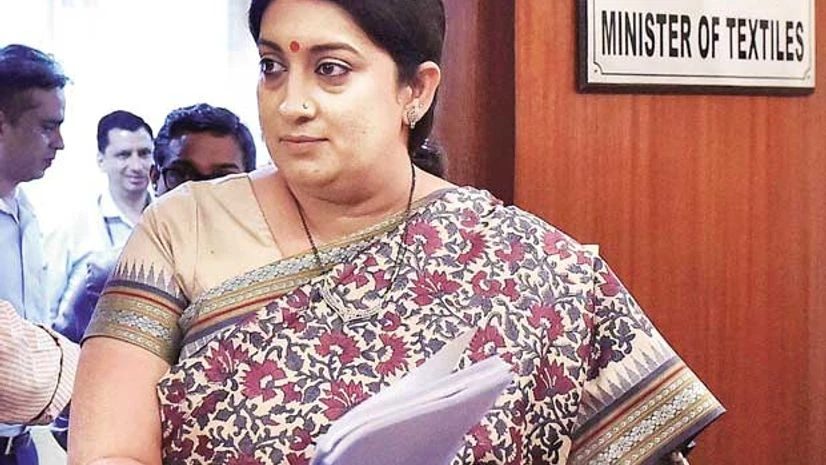The government is considering a separate package for the made-up sector which was left out of the Rs 6,000 crore package announced for the textile sector’s upliftment in June this year.
Speaking at the award ceremony of the Cotton Textile Export Promotion Council (Texprocil), Union Textiles Minister Smriti Zubin Irani said, “Made-up is in active consideration for a special package in our ministry and is on the top of our list. We will shortly celebrate another Diwali for the made-up sector after the usual Diwali.”
The government, on June 23, announced a slew of measures for textiles, in order to generate 10 million jobs, boost exports by $30 billion and investments by Rs 74,000 crore over three years.
| GOING DOWNHILL: Export performance | |||
| Particulars | Apr-Sept 2015 | Apr-Sept 2016 | Change (%) |
| Cotton yarn/fabrics/made ups/handloom products | 5,178.08 | 4,663.95 | (-)9.93 |
| Man made yarn/fabrics/made ups | 2,441.79 | 2,232.77 | (-)8.56 |
| Ready-made garments (all textiles) | 8,563.55 | 8,445.83 | (-)1.34 |
| Jute manufacturing including floor covering | 185.34 | 173.93 | (-)6.16 |
| Carpets | 720.64 | 713.39 | (-)1.01 |
| Handicrafts excl handmade carpets | 840.57 | 1,080.77 | 28.58 |
| Total | 17,929.97 | 17,313.64 | (-)3.44 |
A special package approved by the Cabinet was estimated to cost Rs 6,000 crore. Its aim was to improve competitiveness, leading to greater production through a string of labour reforms, and to generate jobs. Currently, women make up an estimated 70 per cent of the workforce in the garment industry. In this package, however, the made-up sector was excluded.
“While the government has announced various measures to promote exports, there are certain areas that need to be addressed. The government should increase the entitlement under Merchandise Export Incentive Scheme (MEIS) for export of made-ups to the European Union from 2 per cent to 5 per cent, to offset the adverse impact of the tariff preferences given to Pakistan, Bangladesh and Turkey. Also, there is a need to provide for a refund of state levies on exports of fabrics and made-ups, as in the case of garments. Apart from that, there is an urgent need to extend the benefit of the three per cent interest equalization scheme and MEIS to export of cotton yarn,” said R K Dalmia, Chairman, Texprocil.
“The Rs 6,000 crore package is not just a reflection of Prime Minister Narendra Modi’s commitment to the people of India for job creation but also reflective of his confidence in the textile industry,” said the minister.
The industry urged the minister to initiate a dialogue for a free trade agreement (FTA) with the European Union to treat apparel exports to the region as duty free. Indian exporters face huge challenges in terms of discriminatory duties levied by importing countries on textiles.
"Indian textiles attract duties ranging between 9.6 per cent and 12 per cent in the EU as against ‘zero’ on imports from competing countries like Bangladesh, Pakistan, Sri Lanka and Vietnam. In China, Indian textiles attract duties ranging between 10 and 14 per cent. Turkey has imposed very high additional duty of 20 per cent in addition to the normal duty of 8 per cent on textiles imported from India. Indonesia has imposed safeguard duty on Indian cotton yarn. All these factors impact our export growth thereby, slowing down," said Dalmia.
India’s overall textiles exports recorded a 3.44 per cent decline to $17.31 billion between April–September 2016 over the corresponding period last year. The minister said that the FTA discussion needs deliberation of various issues.

)
